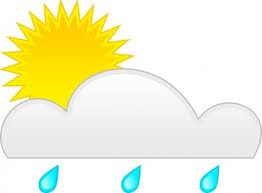
How do you know you're happy? And what is happiness anyway? I'd been thinking about these questions in my own life when I found them repeated in a very interesting book by Harvard psychology lecturer Tal Ben-Shahar, called
Happier. The reason I'd been thinking about them is because I recently started using a couple of measures of happiness to track my mood (more on the reasons for this in another post). The content of the measures included the obvious things like finding life more pleasurable than painful, and enjoying one's daily routine, along with less obvious things like finding life meaningful and one's perception of how quickly time passes. I scored quite high on things like finding life meaningful and loving my work (in fact I scored the highest you can score). But for me this is not what happiness is about. The first day I did the test (called
Authentic Happiness Inventory, from the
Authentic Happiness website) I scored reasonably high but actually felt slightly unhappy. The next time I did the test, a few days later, I felt very happy, but actually scored
lower than the previous time. All this made me think about what happiness means to me, and how I know I'm happy.
Tal Ben-Shahar, looking mildly happy!

So when Tal Ben-Shahar asked 'How would you define happiness?' and 'What does happiness mean to you' I was ready!! I quickly replied (to myself, silently!) 'it means contentment, serenity, enjoying my daily routine, and having pleasurable feelings'. By the last comment I don't mean pleasurable feelings from having an orgasm, buying a new pair of shoes or eating chocolate. I mean the more difficult to define pleasurable feelings that feel like they occur in the cranium, and that any depressed person will tell you are lacking. Not only lacking, but replaced by painful feelings. It's not about the highs, not about bliss, but about feeling comfortable in myself, able to enjoy the many pleasures in life without experiencing them through a filter of painful emotions. I think it's great that I find life meaningful, that I love my work and that I feel like I make a positive contribution to the world. But these things do not constitute happiness to me. They
help my happiness, but to me, happiness is in the pleasant, stable feelings that allow me to enjoy life to the full.
So back to the question, 'how do you know you're happy?' which Ben-Shahar also asks. While it's interesting and useful to track my happiness using the
Authentic Happiness Invento ry
ry and
General Happiness Scale (also from the
Authentic Happiness website), I've decided to add another measure - one I invented myself. I've called it
My Happiness Scale. Ben-Shahar says in his book that he doesn't think happiness is dichotomous, that is, that you're either happy or not happy. Based on my experiences I disagree. I do tend to feel either happy or not happy (although some days I can switch from one state to the other and back again). But it does differ in intensity. My scale recognises this by using 9 points. It goes like this:
Right now I feel:
9 Extremely happy
8 Very happy
7 Pretty happy
6 Slightly happy
5 Neither happy or sad (I know I said this doesn't happen to me, but I felt I should put in a neutral option to be thorough and fair!)
4 Slightly sad
3 Quite sad
2 Very sad
1 Extremely sad
My scores are based entirely on my subjective feelings at that moment. And guess what? I feel happy with my measure of happiness!








 ccept negative feelings. Again, a very simple sounding technique but one that I’ve found amazingly effective. This involves not panicking, but just feeling the feelings. I say to myself ‘just feel it’. This stops me catastrophizing about feeling bad, which makes the bad feelings spiral out of control. It also stops me trying to deny that I’m feeling bad, which usually makes me feel worse.
ccept negative feelings. Again, a very simple sounding technique but one that I’ve found amazingly effective. This involves not panicking, but just feeling the feelings. I say to myself ‘just feel it’. This stops me catastrophizing about feeling bad, which makes the bad feelings spiral out of control. It also stops me trying to deny that I’m feeling bad, which usually makes me feel worse.


























